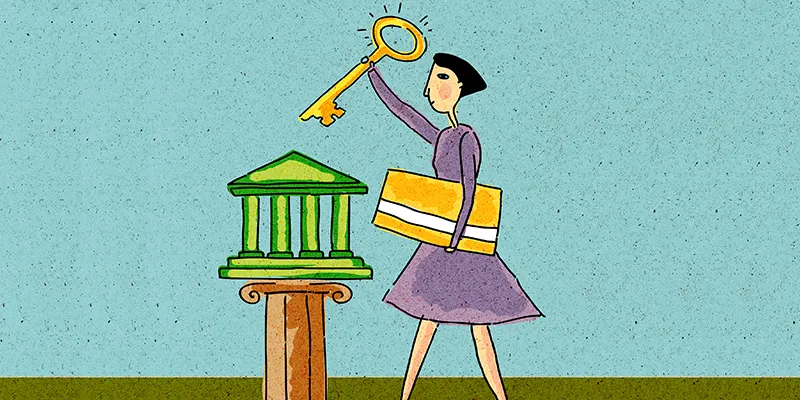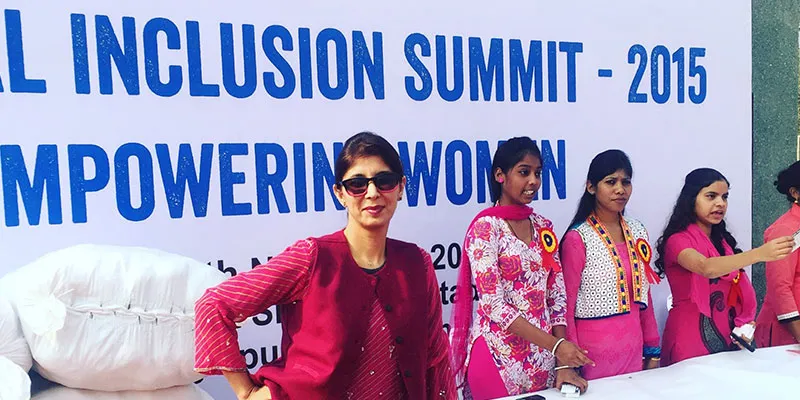Why do women not want to learn about money?
It’s an economic forum for women. The hotel venue is swarming with women. You’d think they would be keen to discuss money given the economic theme. But they don't turn up to the session. There could be lots of reasons, but it made me think about the topic generally, as I've been told repeatedly that women are just not interested in learning about money, and therefore I am wasting my time in trying to reach out to them.

I am an Indian woman. Admittedly, my life turned out to be different to that of a typical Indian woman, if there ever was one. I chose a career in finance to ensure I always had money to survive. To me, money provides options.
So surprised by the perception that women are not interested in money, I am putting my analyst hat on, and wondering aloud if my assumptions hold true. What are my assumptions?
I assume women want equal opportunities
Women have been second-class citizens across the world over for a long time. What is less clear is how this came about. In the book Sapiens, the author explained how the species Homo Sapiens, while being physically weaker, dominated over other species because of our power for story-telling, or gossip. Even he’s not able to explain how men ended up dominating over women, though he finds plenty of holes in the theories about how men are hardwired to be the dominant sex.
Without an adequate explanation of how we got to such an unequal power balance, we’re trying various ways to fix it. We use logic to show that we are good as men, as we can see from various reports on how companies with women directors perform equally well or better. We ask for power…from the very men we say we’re equal to, judging by the implications of the ubiquitous term ‘women empowerment.’ Sometimes we make emotional appeals to set examples, such as to elect a woman to the ‘most powerful office in the world.’
However, in all of these attempts, I sometimes wonder if women purposely go slow, as if wanting to keep the peace in their homes and workplaces. Married women with families stop to question whether we can still have it all. Single women under-sell themselves in the company of single men. Women celebrities feel the need to answer ridiculous questions about whether they are feminists, some backing themselves into a corner about their understanding of feminism. Women authors worry about holding up role models who they believe aped men. Women managers pull out of leadership positions for fear of being labeled ‘bossy.’
This tendency to keep the peace is even more pronounced in a relationship-driven society like India, where family unit reigns supreme. I know of examples of women giving up their inheritance property rights to keep their brothers happy, of daughters feigning disinterest in financial matters to hand over the reigns of their own portfolios to their fathers, of wives not daring to ask about the nitty-gritties of their husbands’ financial dealings for the fear of being locked out of them completely.
So while I assume women want equal opportunities and close the gender gap in pay, in legal rights, and in social acceptance, I feel they seem to be no rush to do so. They seem to take for granted the rights they have, and that other will fight for, while they a harmonious family life. Do we want to have our cake and eat it too?
I assume having own money gives us options
We need money to live – that’s a pretty safe assumption. The questions that follow are more complicated.
How much money do we need to be happy? Study results are mixed.
Do we need our own money i.e. financial independence or is it ok that we operate in a family unit where one member may earn the money while another bears and rears the children? I am sure opinions will vary, but it’s worth remembering that even Beyonce got cheated on, and that family property disputes can take decades to sort out, especially in India.
I think deep-down Indian women already know this, going by their penchant for hiding money leftover from household allowances and accumulating jewellery. Or maybe they think their money will bail out the family in case the wage-earner stuffs it up.
Either way, I hope everyone understands that money is not just money. As for men, money signifies power. It signifies options. When women ask for equal opportunities for work, for pay, for pricing (refer to pink tax), we’re asking for an equal seat at the table.
What we do with that power is up to us. We may choose to work, we may choose to stay home – but it should be our choice.
I assume financial education can help
I don’t know why financial education wasn’t part of our school curriculum. Perhaps finance was so basic that it was assumed kids would pick it up just watching parents. At least some of our parents worked for large corporations or government bodies and assumed they will get a pension in retirement. Certainly, the number of investment options were limited in a world where capital tended to stay within borders and the only ways to invest were to buy real estate, or some shares.
Not only has the finance world become very complicated, we now know humans systematically make cognitive and behavioural mistakes with our money.
We ask for advice from people we trust, such as a family member, accountant or friend, or financial media. The problem is that these people or institutions may be competent but not trustworthy. Or they may trustworthy but not competent. And we don’t know how to tell.
The financial media might be a font of information for finance professionals but comes across as dense and boring to the rest of us. A number of financial education websites and groups have sprung up in recent years offering education for beginners, but effectiveness and credibility remains suspect. Some studies want to give up on financial education altogether and focus on regulation.

Call me idealistic but I believe that financial education can and should be done better. We can incorporate what we know about behavioural economics and finance i.e. how people actually behave. We can incorporate more visuals and story-telling to augment the numbers to appeal to both parts of the brain.
I am aware of the limitations of financial education. Even statistics professors make mistakes in probability calculations needed to make everyday financial decisions. So product and service providers need to design better, and regulators need to hold them accountable. But that does not mean we shouldn’t understand the basics. We need to understand what we are being sold.
What do you believe?
I continue to invest my time and money into creating resources for a scalable approach to financial education. I search for ways I can adapt my financial knowledge and limited writing and acting talent to make it easier for a layperson to understand. I look for large platforms to reach women and millennials who most need it and are inclined to want to learn.
Perhaps I have a blind spot. Perhaps I’ve missed something. Perhaps there are better ways of achieving the same outcome.
I would love to hear your thoughts. Please comment and share. What can we do better?
(Disclaimer: The views and opinions expressed in this article are those of the author and do not necessarily reflect the views of YourStory.)







